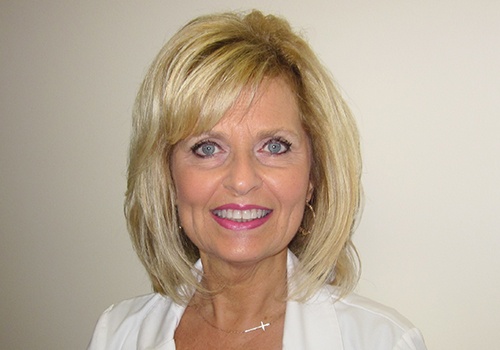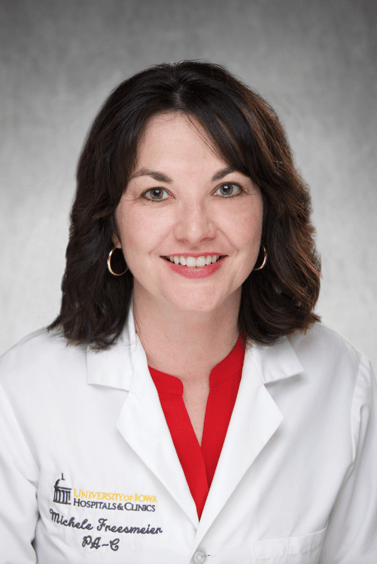Cancer. The big "C" word that unfortunately 38.4% of men and women will be diagnosed with at some point during their lifetimes, according to the National Cancer Institute.
The numbers are staggering. In 2018, an estimated 1,735,350 new cases of cancer will be diagnosed in the United States. As a healthcare professional in any specialty, it's vital to stay up-to-date with new findings and treatments so you can best serve your patients. Because even if you don't work with patients within a cancer treatment center, you'll likely be working with cancer patients in some capacity.
In our latest Continuing Education (CE) series, two leading industry experts share some of the latest information you need to know about some of the most common types of cancer: breast cancer, bladder cancer, melanoma and ovarian cancer.
NHA CERTIFICATE HOLDERS: LOG IN TO ACCESS THE ARTICLE
At NHA, we strive to bring you the latest information you need to succeed in your healthcare career. We know that in healthcare, changes are happening fast, which is why NHA requires Continuing Education (CE) credits to maintain certification. We work with some of the industry's top experts to author CE content and provide you access to the information you need to know now.
About the Authors
Daryle Moore, BSN, RN

With more than 35 years of nursing experience, Daryle Moore has been extensively involved in programs that have enhanced the quality of care and medical treatments for women and men in the Mahoning Valley. Her involvement in these initiatives includes development and implementation of a gynecologic oncology program for women with access to enrollment in clinical trials at The James Cancer Center in Columbus, Ohio. She is currently the Women’s Healthcare Coordinator/Navigator for Southwoods Imaging and Breast Center.
As an advocate for these individuals in need of guidance and management of their diagnosis, Daryle serves as the single point of contact in order to provide the patient with the most advanced treatment options.
Michele Freesmeier, PA-C

Michele Freesmeier has been a physician assistant in the field of oncology for 15 years. Her areas of focus within oncology have been gynecologic oncology, melanoma and sarcoma. She is currently actively involved in an academic practice at the University of Iowa that focuses on bringing cutting edge treatments, via clinical trials, to patients with advanced malignancies.
NHA CERTIFICATE HOLDERS: LOG IN TO ACCESS THE ARTICLE
About the Cancer Awareness Series
This series features four different types of cancer including: breast, bladder, melanoma and ovarian cancer.
The series includes four articles:
- Women and Breast Cancer by Daryle Moore (2 CE credits)
- Bladder Cancer by Daryle Moore (2 CE credits)
- Melanoma: A Review of an Aggressive but Preventable Skin Cancer by Michele Freesmeier (2 CE credits)
- Ovarian Cancer: A Review of the Important Concepts by Michele Freesmeier (2 CE credits)
Topics covered in each article include the following:
- Latest diagnostic statistics, testing and advancement information
- Cancer type and staging information
- Genetic links associated with cancer
- Latest treatments and preventative management tips
- Support and coping mechanisms for cancer patients and caregivers
Below, Daryle and Michele share some additional details and insight about their new Cancer Awareness CE series and advice that's helped them in their careers.
What do you hope certification holders will gain from your new CE articles?
Daryle: The most important take away from my two articles on cancer would be awareness and early detection. Any illness or disease is most treatable and even curable when caught early. Every day there are new treatments and studies done in order to provide better quality of life and even a cure. So many people are living with cancer and not dying from it.
Michele: I hope they gain a better understanding of melanoma and ovarian cancer. These topics can be overwhelming, however, with gaining knowledge of the basics regarding diagnosis and treatment, oncology becomes less intimidating.
Have you or other members of your family been impacted by cancer? If so, how has that experience changed the way you care for your cancer patients?
Daryle: Yes. I do not know anyone who hasn’t had someone close to them diagnosed with some type of cancer. I can tell you one thing for sure, when you are told you have cancer or your test result is positive for a malignancy, the whole universe stops! I like to remember that and make sure my patients know that they are going to get through this ordeal. Not knowing what you are dealing with is the hardest part, once you know what you are up against then you can deal with it. They may only need surgery, or they may need chemotherapy and radiation therapy. Education, support and good resources are so important.
Michele: I do have an immediate family member who has had a long battle with cancer. This experience has made me realize how difficult it is to wait for information from providers regarding test results or appointments. This creates a great deal of anxiety for the patient and his or her family. As a provider, I am much more cognizant of providing test results quickly, even if I am not at work. I don’t want a patient waiting all weekend to get the results of an important scan.
How can you make yourself stand out in your profession?
Daryle: I guess I can sum it up by something my current COO said to me when we were developing my bio for our new breast imaging center. I asked him, do I have to tell everyone I have been working for over 35 years? We had a good laugh and then he said to me, "your years of experience and all of your expertise has gotten you here." That is what makes me stand out as a professional. I worked in oncology in its infancy stage, and then ran a medical-surgical unit, case managed home-care patients, worked as a research nurse enrolling patients in clinical trials, marketed for a long-term care hospital, and now am returning to my roots as a Women’s Health Coordinator/Nurse Navigator for a state of the art imaging center. My work experience is unique to the roles I have played in all of my positions. They are building blocks that have helped me succeed in my professional life.
Michele: In the oncology field, you can make yourself stand out by being actively involved in clinical trials and knowing the latest treatment options available to your patients. Certain cancers that used to be death sentences can now be successfully treated with cutting edge therapies. Informing patients of all these options is important.
As far as being an APP (Advanced Practice Provider), you stand out by being well educated about the diseases you treat and being a staunch advocate for your patients.
What is the best career advice you have ever received?
Daryle: Don’t underestimate your capabilities.
Michele: To quote Sheryl Sandberg, "Lean In." Her sage advice applies to women not just in business and industry, but certainly in the medical field as well!
NHA CERTIFICATE HOLDERS: LOG IN TO ACCESS THE ARTICLE >>
NHA certificate holders have exclusive access to our CE library with no additional fees. To access the Cancer Awareness articles and earn two CE credits per article, log in to your NHA account now.
Before completing NHA CE, we recommend checking the rules and regulations of the licensing or regulatory agency for your state, in case there are different requirements.
LOG IN TO ACCESS THE ARTICLE >>
We’re grateful to have experts like Daryle and Michele contributing valuable content in our CE series. We believe there’s no better source of learning than from the men and women who are actively working — and leading — the industry today.

